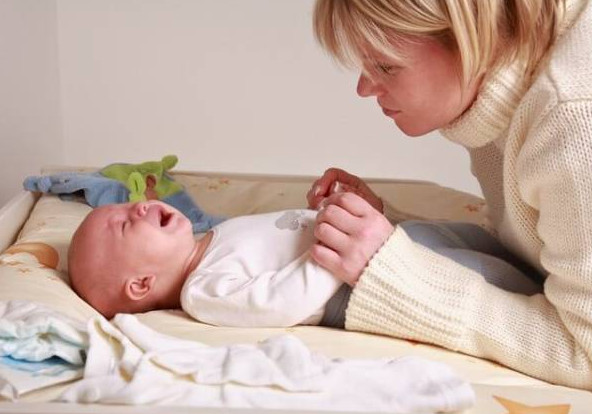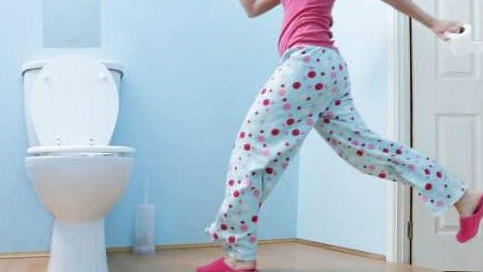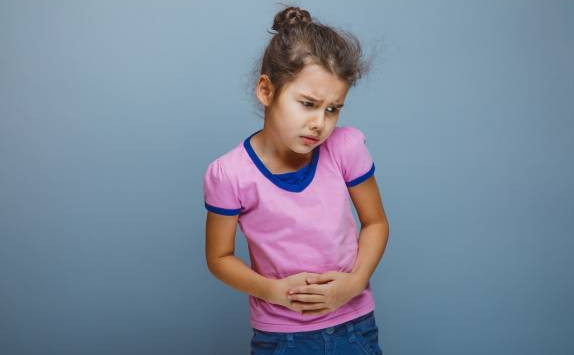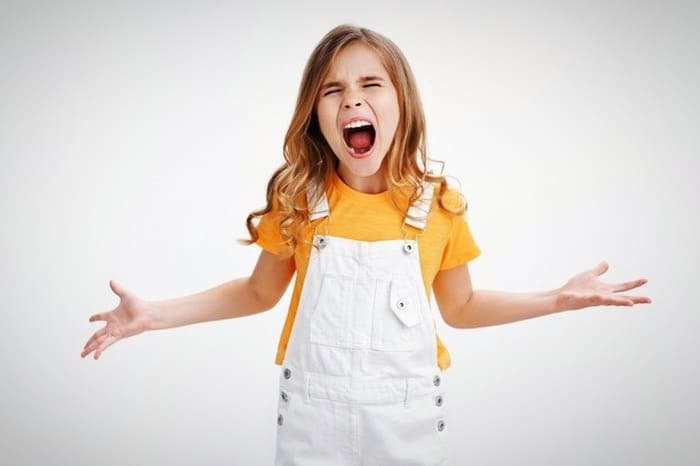Frequent urination in children, causes, diagnosis, and treatment
If your baby urinates and urinates more than seven times a day, these are signs of frequent urination. In most cases, frequent urination is usually a sign of a urinary tract infection (UTI) and is more common in girls than boys or may be due to a lack of diagnosis of different types of diabetes.

Understanding the frequency of urination in children helps you find the right course of treatment. If your child complains of frequent urination, it is essential to take his or her concerns seriously because these symptoms may be because you do not spend more time with him or her, or you care more about younger children and less about it. You care. You pay attention to the child, so give him a chance and pay more attention to his work.
This happens very rarely, and fortunately, you can treat this problem with your parents’ skill. On the other hand, this may be due to health issues, which you should consult a doctor.
Urinary tract infections are the leading cause of frequent urination, but there are other reasons mentioned in the following article.
Reasons for frequent urination in children:
Urinary tract infection
One of the symptoms of a urinary tract infection is frequent urination. It is accompanied by pain and burning sensation when urinating, as well as fever and abdominal pain. Girls urinate more because their bodies absorb the smallest germs. , Especially when using public toilets.
Constipation
If your child suffers from constipation, the stools become blocked, hard, and press on the bladder. This, in turn, causes bladder spasm and leads to frequent urination. Therefore, make sure that your child eats foods rich in fiber and drinks enough water to prevent constipation.
Persistent constipation is not a good sign. It would help if you asked your pediatrician about the cause of constipation. If your baby complains of pain when urinating, it will be painful to control bowel movements that cause frequent urination.
diabetes insipidus
Diabetes insipidus is due to a lack of an anti-diuretic hormone that controls urine flow from the kidneys. If your child has the disease, he or she will have a significant amount of dilute urine and intolerable thirst.
Frequent urination symptoms in children include dehydration, short stature, irritability, malnutrition, and high fever. The symptoms of this disease are very similar to other medical conditions. Your doctor may recommend a urine test and a blood test that your child does during a hospital examination.
urinary incontinence
Some children are accustomed to not emptying the bladder. This is not a medical condition but a psychological behavior of the child who may feel that he is losing something even in the shortest time in the bathroom, so over time, the sphincter muscle, which allows you to hold urine, more than The limit is activated and causes frequent urination.
If you think your child has the disease, it is essential to help them identify better urination methods. Encourage your baby to empty his bladder and urinate every two to three hours.

Diabetes
Excessive urination is a sign of diabetes that includes frequent urination. Other symptoms of diabetes include pneumonia (drinking more fluids than usual, more with excessive thirst), polyphagia (sudden increase in hunger), and severe weight loss. Children’s urine contains glucose and ketones, which are perfectly detectable in urine. If your doctor suspects diabetes, he or she may recommend that you measure your baby’s fasting blood sugar levels.
Pollakiuria
Pollakiuria often affects children aged 3 to 8 years. This condition causes frequent urination; your baby may go to the toilet at least 10 to 30 times a day but empties a small amount of urine. There is no polio sign, so do not expect your child to complain of abdominal pain or burning sensation.
Little is known about Pollakiuria, but experts believe that stress plays a vital role in its development. Doctors claim that the disease does not need treatment because the more urine the child experiences each day, the more urine is excreted.
Vaginitis
Vaginitis is skin irritation in and around the vagina for girls and the sagging urethra in boys. The disease can cause symptoms similar to a urinary tract infection, and frequent urination is one of these symptoms.
This condition usually occurs in postmenopausal girls when the skin around the vagina is susceptible. Common irritants such as soap and shampoo can cause skin inflammation and lead to Vaginitis. Improper toilet hygiene without cleaning after urination can cause vaginitis.
Symptoms that may occur with frequent urination:
Frequent urination often indicates an underlying disease that requires medical treatment. This is often accompanied by fluctuations in urine with other symptoms, which allow the doctor to make a differential diagnosis.
Other symptoms may include burning when urinating, fever, pain when urinating, abdominal pain, and an urgent need to urinate. There may be changes in the appearance of urine. Urine may be dark and odorless. There may also be cases of bedwetting, unknown thirst, or sudden weight loss. These symptoms indicate that frequent urination requires proper diagnosis and treatment.
Diagnosis of recurrent urination and frequent urination in children:
Urine test
If you notice frequent urination symptoms with or without the system, it is recommended that you see a pediatrician. In most cases, your pediatrician may recommend a complete urinalysis to diagnose recurrent urination.
Urine culture
If the symptoms also indicate a possible urinary tract infection, the pediatrician may perform a urine-to-urine test to identify the bacteria that caused the condition.
Blood test
On the other hand, if your doctor thinks your child may have diabetes, he or she may suggest a blood test. She wants your baby to have a fasting blood test.

Frequent treatment of urine and its treatment methods in children:
The most common cause of frequent urination is a urinary tract infection, so doctors prescribe antibiotics to treat the disease. If this problem is due to poor hygiene, you should familiarize your child with the proper way to clean your genitals.
Another aspect of the issue here is encouraging children to have a healthy bathing habit. It would help if you enabled your child to use the toilet every two to three hours. It also ensures that you do not allow your child to drink too much fluid.
Treating children with type 1 diabetes requires a proper diet, regular monitoring of blood sugar levels, and the use of medications such as insulin that balance blood sugar levels.
Prevention of recurrent urination in children:
There are several ways to prevent your baby from urinating frequently. Here are some tips to help your baby urinate more:
- Treating children with type 1 diabetes requires a proper diet, regular monitoring of blood sugar levels, and the use of medications such as insulin that balance blood sugar levels.
- Proper hygiene is essential.
- Teach your child from the beginning that it is essential to clean the genital area after regular use of the toilet, both urine and feces.
- Soap baths can irritate the genital area, so to prevent this, it is recommended not to use too much soap to wash the genital region.
- Avoid tight clothing is especially helpful for girls.
- If your baby has diapers, change them regularly.
- If your child has a urinary tract infection, increase fluid intake in your child’s diet.
- Dehydration can cause bacterial infections.
- As a general guideline, encourage your child not to forget to urinate and empty their bladder.
Pollakiuria in children:
Pollakiuria is a disease that affects daily urination frequency and generally affects children in the age group of three to eight years. A child with this condition may frequently urinate, even if the amount of urine is minimal.
The cause of Pollakiuria is unknown but may require urination 10 to 30 times a day. Simply put, pollakiuria is a benign disease that appears to be expected in toddlers. Doctors do not believe in treating polycystic ovaries with drugs because the condition resolves on its own from about seven to 12 months.
Symptoms of Pollakiuria in Children:
Children do not have another problem with the symptoms of Pollakiuria, and it occurs due to stress.
The minimum interval between urinations is about 15 to 20 minutes but maybe as fast as every 5 minutes. This condition is more common in children 5 to 6 years old but can occur at any time from 3 to 8 years old. Whenever the amount of urine secretion is relatively low, and the color, flow, and smell of urine do not change. Urination may be frequent at night and lead to enuresis.
- There are no symptoms of incontinence in children.
- There is no change in abdominal function.
- There is no abdominal pain or burning urination.
- Your baby’s natural urinary retention pattern
- When did you notice the positive changes in your body?
- Was there a reason for the urinary tract infection?
- Number and frequency of defecation:
- If your child also has symptoms of polyps, abdominal pain, or flanks.
- Is there a sign of heartburn?
Types of frequent urination in children and its causes and symptoms
Frequent urination in boys
If you notice that your baby urinates 6 to 7 times an hour, this is frequent urination. As mentioned earlier, boys are less likely to develop UTIs than girls. However, they can cause a man called mitosis at the beginning of the penis. This causes inflammation which leads to frequent urination.
For boys who suffer from constipation and frequent urination is accompanied by pain and discomfort, they should see a urologist because this can be an infection in the bladder or urethra.
Frequent painless urination
Frequent painless urination is not a severe problem. An overactive bladder (OAB) is usually a condition that your baby can control. This condition can occur with a sudden need to urinate, which often embarrasses your baby. OAB in children can be the same as in adults but may be problematic for young people.
Because these conditions can accidentally cause everyday problems at school, they may affect the child’s emotional and social health. An overactive bladder appears to be like frequent urination, but this is not common in children with OAB. Such children may experience urinary incontinence when sneezing or develop enuresis, and OAB may be due to urinary tract infections.
Frequent urination of children during the day
Children between the ages of 4 and 5 suffer from frequent urination during the day. Your baby may urinate every 10 to 30 minutes, alternating 30 to 40 times a day. Frequent urination is painful, and your baby may urinate a small amount each time he goes to the toilet. Frequent urination during the day in children is often due to emotional stress, and it is involuntary urination that may occur a day or two after the onset of stress. There is no room for fear or anxiety as this can make the condition worse. Instead, trust your child and tell your pediatrician. A urine test will help your child treat the infection.
Frequent urination in children
If your child has frequent urinary symptoms, he or she may have diabetes. However, this sudden increase in urination frequency is accompanied by other related symptoms such as weight loss, increased appetite, increased fluid intake, and the onset of extreme fatigue.
It is essential to consult a pediatrician even if your child has no other symptoms. This is because of sudden and frequent urination, and health care providers are the best source for diagnosis and treatment.
Frequent nocturnal urination in children
Frequent nocturnal urination in children can lead to enuresis. Your baby may have a urinary tract infection, a bladder infection, a lack of bladder volume, or even emotional stress. Even neurological disorders such as; Multiple inflammation and atherosclerosis, and kidney infection can lead to frequent urination in children at night.
Some children may suffer from enuresis due to sleep disorders, so if you manage to control sleep disorders, the frequency of urination at night will go away on its own. Make sure your baby does not drink too much fluid before bed.
Also, avoid caffeinated beverages as it may lead to enuresis. The best way to diagnose enuresis is to see a doctor.
Frequent need for urine in children
If your baby needs regular urination, it is essential to consult a pediatric urologist. If your child does not have an infection or diabetes, it could be behavioral or psychological reasons. This is due to excessive and excessive consumption of liquids and frequent requests to go to the toilet.
Other children, especially boys between the ages of three and a half and four, insist on going to the bathroom. This habit can last up to six months before disappearing. At this stage, it is better to limit the number of fluids in your baby or use attractive solutions.
You can also set times and encourage your baby to control their urine as much as possible to regulate bladder capacity.
Also Read:
Benefits of zucchini for health and treatment of diseases


